Bread Politics: Breadline Battle as Gail’s Come Under Fire in Trendy Walthamstow
The Telegraph headline, “Gail’s Bakery Revolt: East Londoners Reject Investor’s Right-Wing Views,” might seem shocking as bread meets politics, and most major papers followed the story of how unpopular Gails is becoming as it expands. According to one report over 500 people in the area signed a petition rejecting Gails.
However shocking, the fact is, that bread has always been at the epicentre of political discourse and social unrest. Bread riots have often changed the political landscape. It was the bread shortages that ignited the French Revolution, and the humble loaf has long been a symbol of both sustenance and power, reflecting the societal tensions currently simmering beneath the surface. There’s no question that people are finding things tough out there, but there is also a history of working hard to earn a crust.
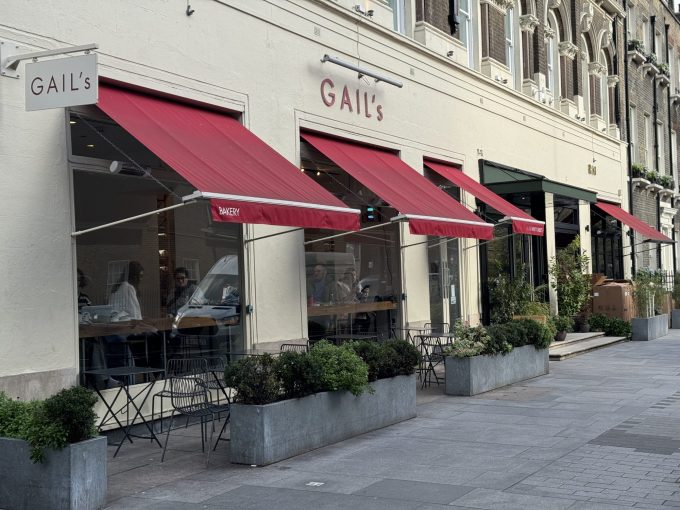
Consider the case of the French Revolution, often cited as a political upheaval that began with cake and the sound of muskets, but was, in reality, ignited in the quiet, flour-dusted corners of a bakery. When Parisians lynched a baker accused of hoarding bread, they were not merely lashing out at perceived economic injustice, but rebelling against a system that allowed the few to control the lifeblood of the many. The tragic fate of that baker highlights a broader truth: bread has never been just bread. It has been a powerful symbol of inequality, control, and the collective struggle for a fairer world—thankfully, the bakers at Gail’s and The Bread Factory are not likely to meet the same fate as the French bakers at the hands of the leftie elite locals in Walthamstow.
That said, the Telegraph has seized on this righteous indignation, with journalist Albert Tait reporting on the outraged residents of Walthamstow asking, “Are you concerned about coffee chains, such as Gail’s, running independent cafes out of business?” The last I checked, this wasn’t Costa Coffee, but a bakery producing artisan bread.
Fast on the heels of this sensational piece, Tom Haynes, a money reporter at The Telegraph, followed with equal outrage in a second article berating the waste-less policies at Gail’s, where customers are encouraged to pay £1 extra for day-old croissants, now transformed with frangipane and almonds to reduce waste. It seems accusing a bakery of opening, making a profit, and not wasting food sells newspapers.
Is the Telegraph really upset about selling reheated pastries that previously went unsold? Or are there deeper politics at play? Is this kind of left-wing sympathising feature a genuine reflection of the new values under Labour, as traditional right-wing media uses the mood and economic dynamics affecting local communities? Or is the backlash against Gail’s more about taking a pop at investor Luke Johnson, a known figure who holds pro-Brexit and anti-lockdown views?
As an aside, Luke Johnson cuts an interesting figure. An entrepreneur central to the expansion of many familiar chains, including Pizza Express, Johnson is known for his pro-business, libertarian views. He is a powerful businessman who served as the chairman of Channel 4, the British public-service television broadcaster, from 2004 to 2010. He contributes to major publications like The Sunday Times and Financial Times. His columns on business, economics, and entrepreneurship reach a wide audience. Nevertheless, one of the most controversial chapters in Johnson’s career is his involvement with Patisserie Valerie. He was the chairman of the company as it expanded rapidly across the UK. However, in 2018, it was revealed that the company had been involved in significant accounting fraud, leading to its collapse. Johnson faced criticism for his role, although he has consistently denied any involvement in or prior knowledge of the fraud.
Genuine Concerns about the Expansion of Gails
With 130 bakeries, the featured did raise genuine concern in the baking community that Gail’s rapid expansion is driving out smaller, independent bakeries that do not benefit from the economies of scale of a £200 million turnover group. Certainly, as I chatted with locals outside Richmond Hill Bakery, the locals agreed with the point that expansion of Gail’s Bakeries does undermine the character and economic diversity of local high streets. However, as I reread the feature on Gail’s, I didn’t get the sense that the article offered a balanced view of how this fast-growing chain’s commendable efforts support the community through raising the standards of good bread quality or their focus on sustainability . Many years ago, I headed up one of the fasted growing companies in the UK, and took them into The Times top 100. I rarely share that my first degree was in Marketing and Psychology of Human Communication, but in the years that I stopped being baker, I ran a company of a similar size and high street structure to Gails. I enjoyed the challenge; it was fast, and furious. ( With no modesty what so ever, it is fair to say that I was brilliant at it, winning both national industry award, the runners up were Wheetabix and Tescos which was somewhat satisfying to say the least. It was long time ago, but I have a unique insight to the kind of rapid growth of a high street chain.) I feel qualified to say that what the Gail’s management team has failed to do is communicate the aspect themselves that is key to their brand – the fact that they do things differently, so it’s hardly surprising that a journalist wouldn’t dig any deeper. Their future depends on being understood.
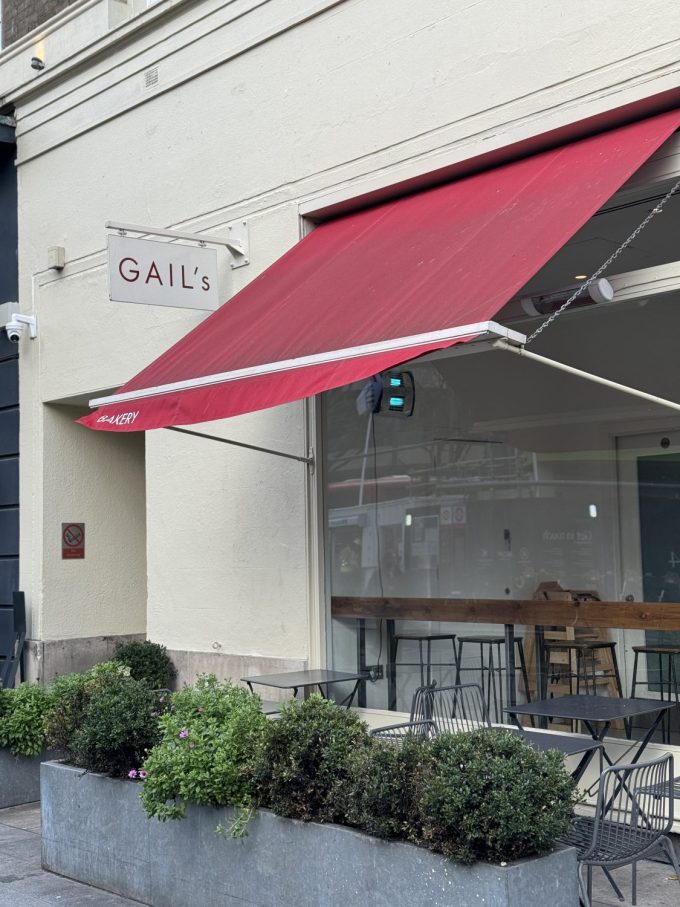
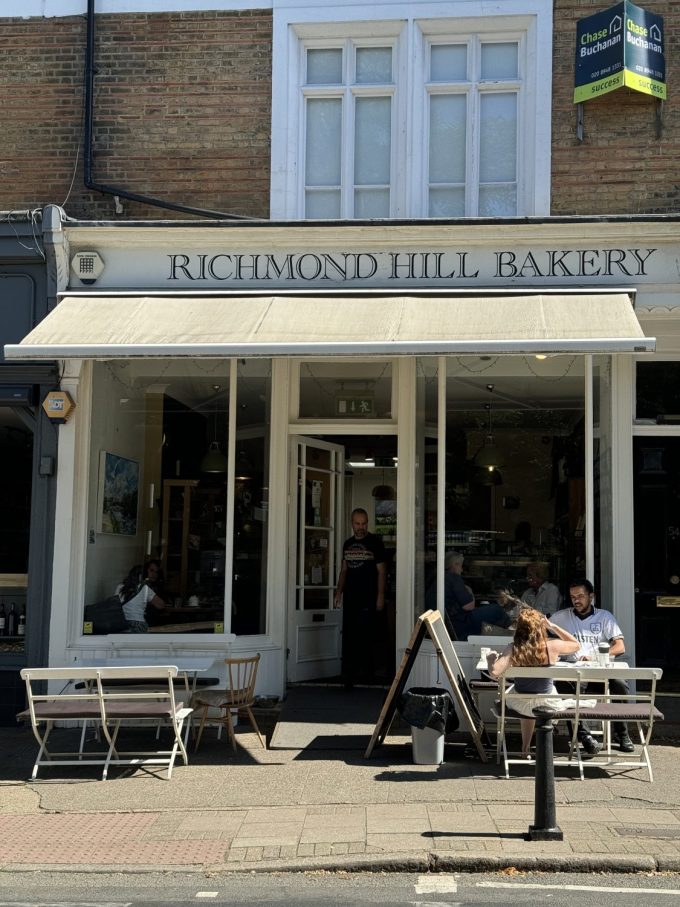
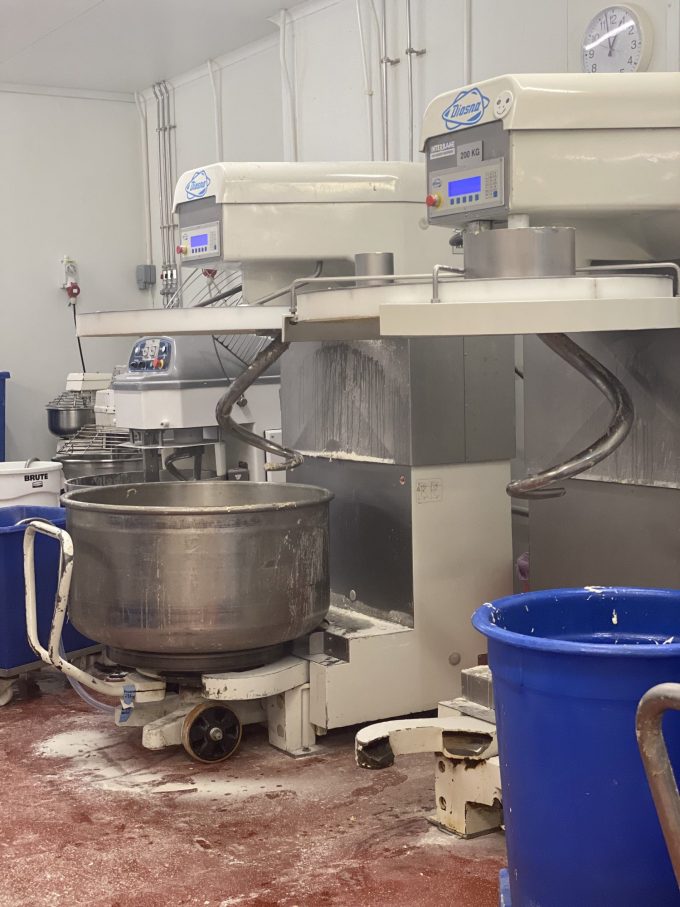
The things you don’t see, or hear
I don’t work or have any ties to Gail’s, but I do feel a sense of injustice and that these features may well be a turning point for the expansion of Gails. So I will share some of my insights. Earlier in the week, I was been standing with a farmer and miller, Henry Astor of Bruern Farm, in the most beautiful setting, looking across a golden field of heritage grain, listening out for the sound of a skylark. They are rare now, but in supporting farmers like Henry and sustainable agricultural practices, Gail’s is changing the balance of power. Again what the reporter fails to share with the readership is any aspect of Gail’s bread that champions their superb environmental and sustainability approach, or the phenomenal amount of work and determination it takes to bake and deliver real sourdough without the enzymes, emulsifiers, pesticides, and herbicides found in conventionally produced bread. There is real danger in this kind of high readership, poor journalistic articles perpetuating the persistent undercurrent of resentment that because it fails to represent the full picture. I fear , not just for Gails, but that it may threaten the emergence of a new paradigm of bread. A more experienced journalist might have mentioned that Gail’s is a counterbalance to the supermarkets that exert significant control over the bread market, influencing everything from quality and production to the limitations of consumer choices. Finding a delicious, stoneground heritage grain, long slow fermented bread available in the market is in itself a remarkable achievement and a commendable challenge to one of the most damaged parts of the food system—bread.
So while appearing to support left-wing politics that emphasises equity and strives to level the playing field by addressing systemic inequalities, poor journalism fails to highlight that establishing direct connections from farm to high street, and bringing high-quality, nourishing bread to the community, is the very embodiment of the equality and choice that should elevate bread as a tool for nourishment and social justice. Despite the management team’s right-leaning stance, I would argue that Gail’s approach to bread actually aligns perfectly with the core principles of equity that the left professes to champion.
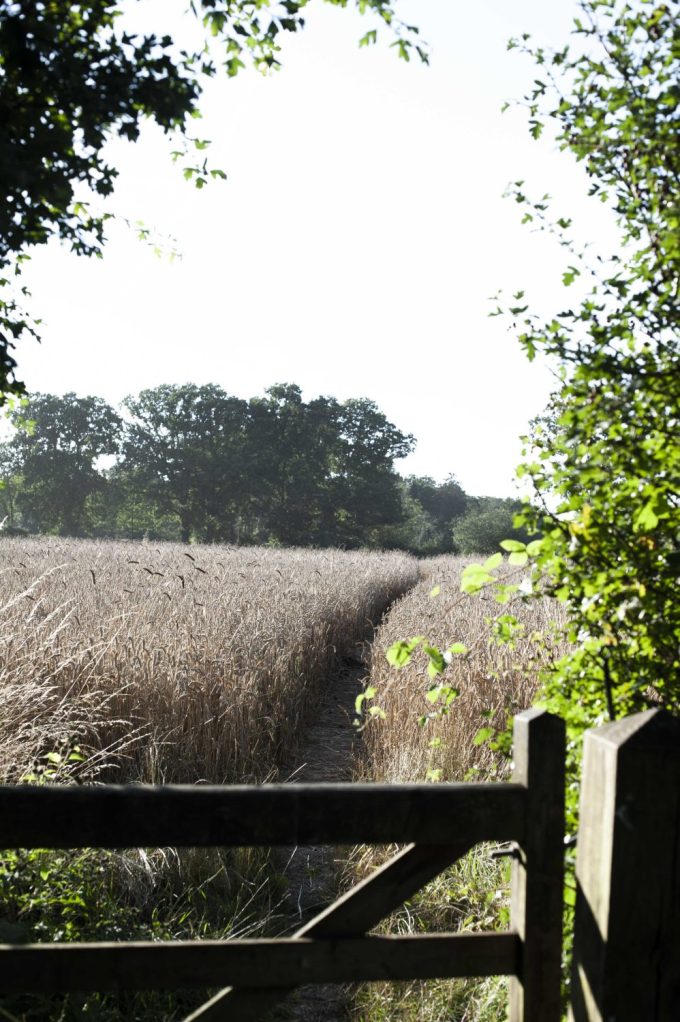
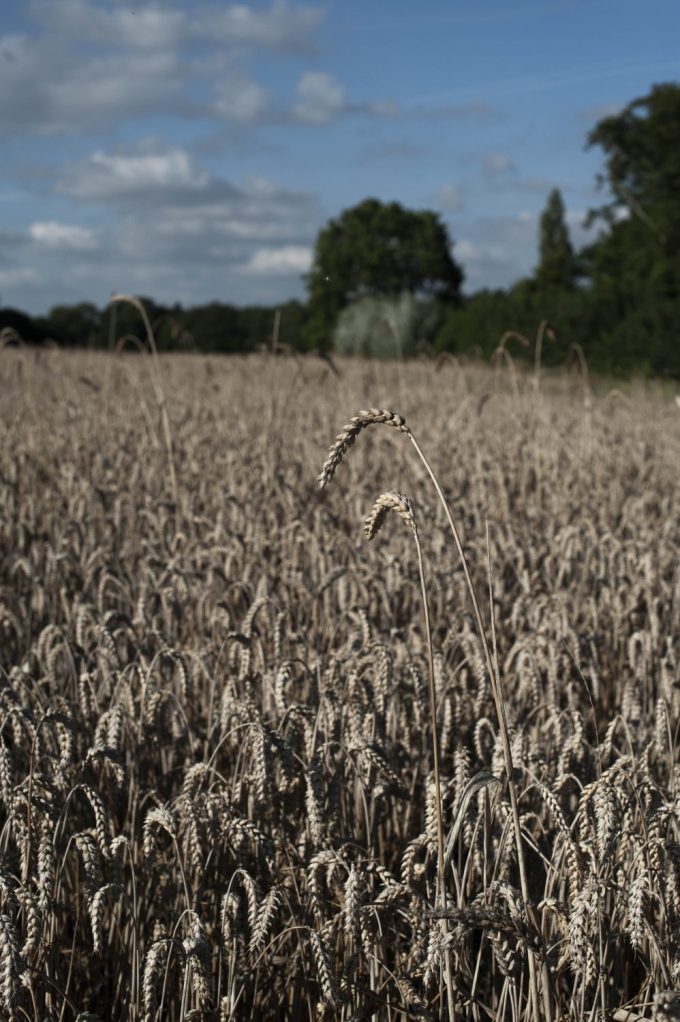
Is Gail’s undermining the character and economic diversity of local high streets, or is it forging a new paradigm of bread?
Whilst the feature on Gail’s Bakery opening in Walthamstow Village highlights valid concerns about local business preservation as this report details how Gails was blamed for the closure of a small independent bakery, however it also indicates a significant contradiction of values around community. While it’s understandable to rally against the threat to independent shops, the deeper issue is that a feature that fails to offer a balanced view of Gail’s, and potentially prevents the bakery from opening in the neighbourhood, actually perpetuates social inequality. In defending mass-produced, fibre-poor bread from chains like Greggs, critics are, in effect, consigning the less affluent to substandard bread that exacerbates serious health problems faced by many communities with lack of access to decent bread.
Gail’s represents an elevation of standards—a commitment to artisanal quality and sustainable practices on a larger scale. Yes, their success might contribute to gentrification, but the core of this debate isn’t really about bread; it’s about power, change, and who benefits from progress. The more pertinent question is not merely who gets to run a bakery—it’s about who has access to bread that truly nourishes. Instead of targeting a bakery that aims to improve quality, shouldn’t our journalists focus on the bigger issues, such as the global conglomerates that profit from over 60% of our diet consisting of ultra-processed food, including poor quality bread, which contribute significantly to chronic diseases and environmental degradation?
By constantly using sourdough to pull down perceived elites, poor journalism is doing more harm than good?
Coverage in the right-wing press has targeted sourdough regularly, framing it as an elitist indulgence. This approach does not contribute to meaningful discourse; rather, it diverts attention from the critical issues at hand. By attempting to undermine those who strive for better, such journalism fails to support public health and sustainability, which are vital to our collective well-being. Journalists are undermining the community that is trying to stand up for real bread and food that nourishes and is minimally processed.
Instead of distracting the public with these misdirected critiques, there should be a concerted effort to raise the standard of bread for everyone, not to lower it. Quality bread is not a luxury; it is a fundamental necessity and the foundation of good health. I believe that the media has a responsibility to shift the narrative and advocate for food that sustains and nourishes us all. My hope in writing this is that we recognise that misguided criticism of sourdough does more harm than good, particularly when it undermines efforts to address the real challenges of our food system. Perhaps they might also consider offering a more balanced view of the companies they write about in their columns.
Shouldn’t good bread be accessible to all, rather than just the preserve of the upper crust?
This resistance to Gails bakery also raises a moral question. In opposing the introduction of a bakery that offers healthier, more nutritious bread, are the Walthamstonians objecting also inadvertently perpetuating a cycle where the poorest are left with only the cheapest, most harmful options? Poor quality bread, often laden with additives, lacking in nutritional value, and linked to a host of health problems—including cardiovascular disease, diabetes, obesity, and neurodegenerative diseases—starves the gut microbiome and undermines overall well-being. Shouldn’t good bread be accessible to all, rather than just the preserve of the upper crust?
It’s time for journalists to stop cherry-picking narrow left-wing values, offer a balanced view, and consider how they can write informatively to empower those most in need to gain access to healthier options. Instead of opposing Gail’s on the grounds of gentrification alone, there should be a focus on enabling local people to access locally made, high-quality bread. This would involve supporting local bakeries that connect directly with farmers, ensuring that communities benefit from nutritious, sustainable food, as it once was everywhere across the UK and still in living memory.
The time has come for both left and right to stop squabbling.
Ultimately, what we need to consider is whether chains like Gail’s have a place in these communities and how we can ensure that everyone—from farmers to small local bakers and consumers, regardless of income—has access to the kind of bread that nourishes both body and soul. A healthy, thriving community is built on equity, where good food is not a luxury but a right available to all. Time is running out, and without companies like Gail’s dynamically creating systems change, the degradation of our bread and traditional baking techniques, and the irreversible damage to our environment, will mean that good bread will disappear to all but the home baker and the very elite.
Without choice, the inevitable consequence is the unchecked proliferation of ultra-processed bread that perpetuates disease and poor health. The residents of Walthamstow may not like that Gail’s has grown into a chain, but this kind of access to decent bread is the true essence of social justice. Sourdough bread is always more expensive—it is hand-crafted, long slow fermented, but it nourishes and avoids the chemicals linked to poor health outcomes. I believe that the time has come for both left and right to stop squabbling and for journalists to stop selling papers to the outraged middle class with a half-story that sensationalises the expansion of a dynamic, successful bakery providing good bread, and instead focus on the real battles that our farmers, artisan bakers, and the public are facing—before it is too late.
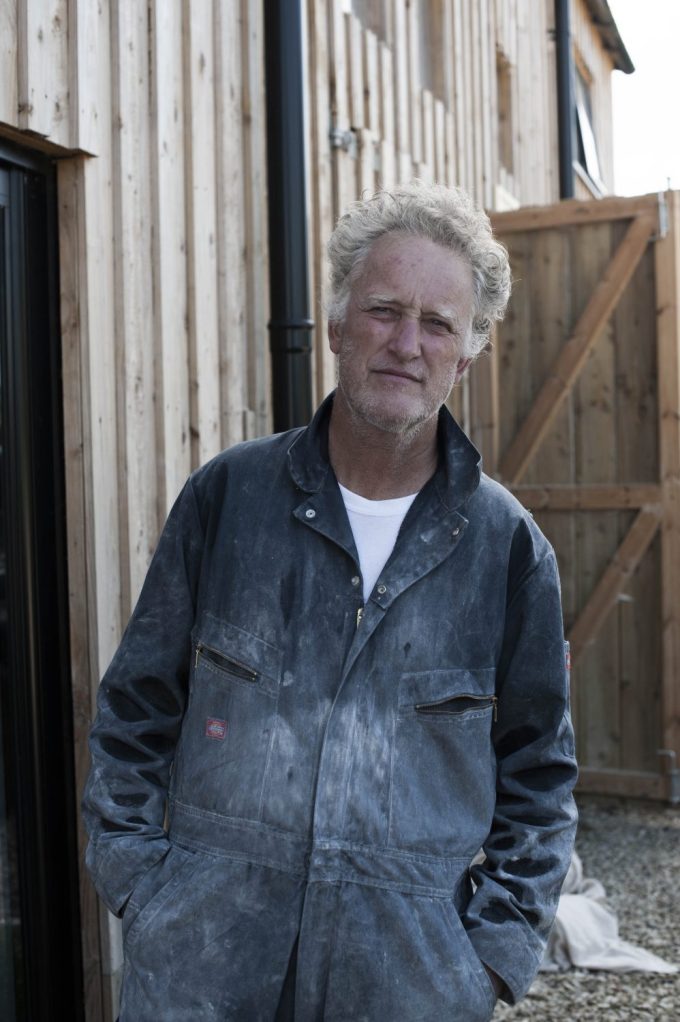




 What is Sourfaux?
What is Sourfaux?
Sadly Gail’s products are not as good as when they started out and had only a few outlets. It’s good that they are selling good bread on a larger scale but sadly expansion always seems to lead to a decline in quality. When Tesco bought out Euphorium and tried to roll it out it just didn’t work! They just ruined an excellent bakery that’s not been the same since. I’d prefer to support the independents but I have the luxury of being able to afford to do that.
Thank you. This is very important information regarding how poor journalism can make a case that ignores the real work of Gails.
Really well balanced article, thankyou for this.